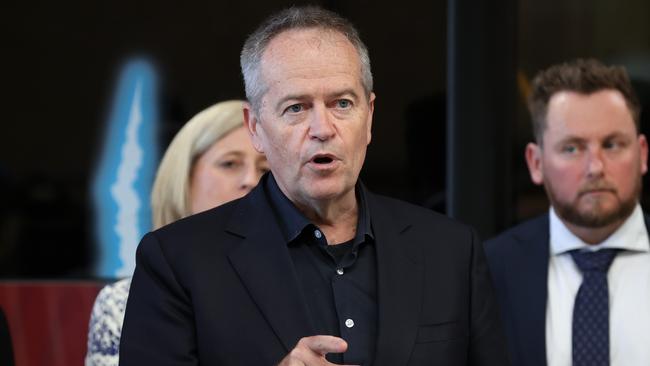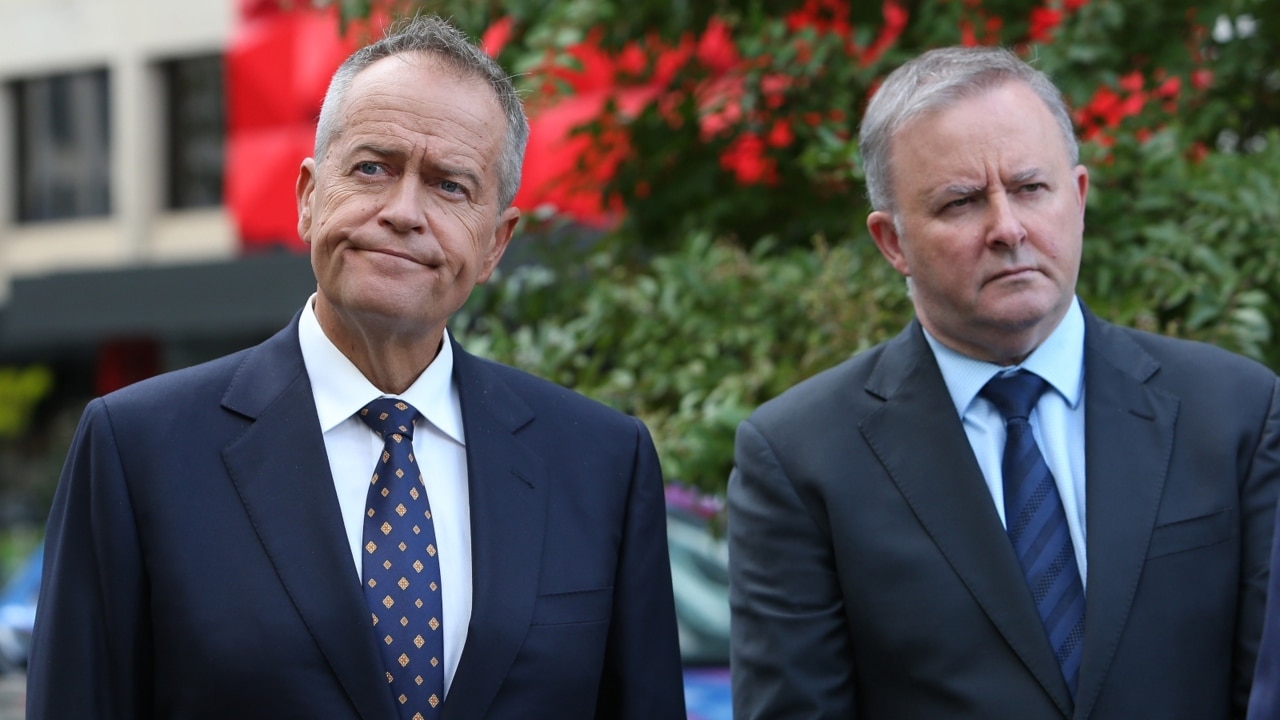Bill Shorten targets ‘NDIS criminals’
Bill Shorten has flagged a crackdown on policing the NDIS after raising concerns that organised criminals are fleecing’ the government’.

Bill Shorten has flagged a crackdown on policing the NDIS after raising concerns that organised criminals were “fleecing” the government by falsely claiming they were providing services for disabled people.
The new NDIS Minister also lashed out at people who claimed the program was unsustainable, amid projections it could cost $60bn a year by 2030.
“They don’t know what they are talking about,” Mr Shorten told The Australian. “They are probably the people that never wanted the scheme to exist to begin with.”
Mr Shorten said he would not ignore the expectation that taxpayer money needed to be spent “responsibly”, vowing to crack down on fraud, incompetence and service providers that deliberately overcharged disabled people knowing the bill would ultimately be paid by a government agency.
He also said the scheme was “not for everyone” and flagged the need to reduce the demand for the NDIS by working with state governments to give more support for people with mental illness and children with learning difficulties.
The NDIS is expected to grow from nearly 520,000 clients now to 670,000 in 2024-25 and nearly 860,000 by 2029-30.
The NDIS annual financial sustainability report predicts the scheme will grow in cost from $29bn this financial year to $41bn in 2024-25 and $59bn in 2029-30.
Medicare is projected to cost $31.4bn next financial year.
Mr Shorten said people the NDIS was “never intended for” were being forced on to the scheme because other support systems were insufficient, causing the costs of NDIS to escalate.
“Australians generously supported the idea of a National Disability Insurance Scheme, but they don’t want waste, they don’t want incompetence, they don’t want fraud, they don’t want overcharging,” Mr Shorten said.
“And they know the scheme is not for every person.
“So part of the challenge is to create a national disability strategy which has tier-two supports, or supports for people who the scheme was never intended for but still need support.
“And to some extent, it’s become a bit too easy, I think, in the policymakers’ mind to say ‘the NDIS will fix that’, when in fact it was never designed to provide some of the other supports.”

After the Australian Federal Police charged four people with links to a western Sydney crime gang of defrauding the NDIS, Mr Shorten said he was concerned about the scheme being exploited by criminals.
“I worry about the role of organised crime,” he said. “Any government payment system is like a honey pot for the flies and we have got to make sure there are sufficient safeguards so organised crime isn’t fleecing money.”
The NDIS Fraud Taskforce on Thursday revealed four people would face criminal charges for defrauding the NDIS of more than $2m.
“Operation Pyxis resulted in the arrest of four people with links to Middle Eastern organised crime entities,” the taskforce said in a statement. “Three of the individuals, operating as disability service providers, were later charged for wrongfully claiming money from NDIS participants for services not actually received.
“A fourth person, a 62-year-old man, was charged with allegedly dealing in the proceeds of crime. It is also alleged the people arrested threatened violence towards participants and witnesses.”
Mr Shorten outlined plans to tackle structural issues with the growing number of people accessing the NDIS, including working with states and territories to ensure public schools were better able to cater for children with learning disabilities so they were not forced on to the scheme.
“A lot of parents get early childhood intervention, which is really crucial for their kids, but the NDIS was never designed to replace the educational system in Australia,” he said. “And so I think there’s a genuine discussion to be had with the states and territories over whether there’s enough support being provided to kids with learning difficulties in schools.”
Mr Shorten said another systemic challenge was that the NDIS “is like the only lifeboat in the ocean for people with mental illness … While there’s tens of thousands of completely legitimate people with severe psychosocial needs on the NDIS, there’s nothing else for people with more episodic mental illness, there’s not enough community support.
“That’s a deep dive. You can’t just click your fingers and solve that. That’s a big issue.”
Mr Shorten would not say whether he planned to renegotiate the NDIS funding agreement with the states, but he did say he aimed for a royal commission into robodebt to begin by the end of the year.
More Coverage








To join the conversation, please log in. Don't have an account? Register
Join the conversation, you are commenting as Logout